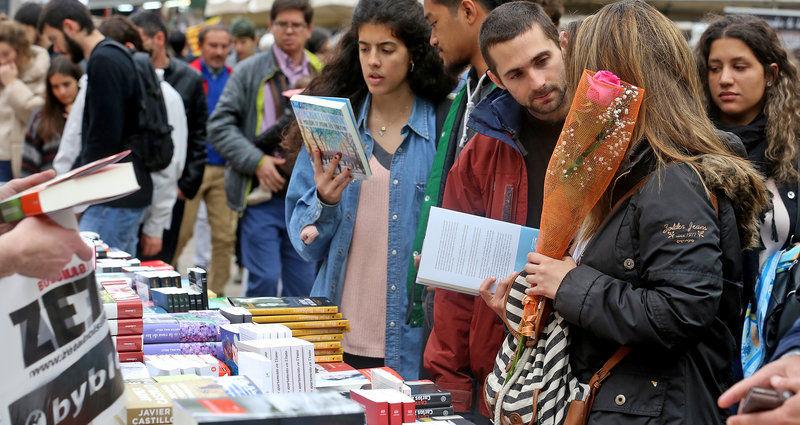A promised land
Rising book sales during the pandemic in Catalonia offer the industry hope that reading is beginning to rival major leisure pastimes
Aquesta faceta artística de la cultura catalana ha estat la més pobra, la més poc ajudada i la més necessària en un moment en què hi ha més audiovisual que mai. Vull seguir fent coses que quedin.It’s a commonplace that book-reading is in decline. Screens are replacing paper and on screens most people are not reading books. This is a scary reality – for those of us who think: one, that critical awareness is essential to combating capitalist hegemony; and two, that children getting the habit of reading books is key to developing critical awareness.
It’s scary, too, for book-loving fetishists, all those of us who learn from books, take refuge in them and adore the touch and smell of paper, whether the tang of fresh ink on new pages or the sweet faecal whiff of decay in second-hand book stores.
Come-back
Fortunately, appearances deceive. Books are making a come-back. In the United Kingdom in 2021, 212 million books were sold, 5% up on 2020. And 2020 saw a 7% rise in total sales over 2019. 2020 and 2021 were years of the pandemic, so this has its logic. When forced by plague to stay home, people had more time to read. Kids off school needed to be educated. Sales of cookbooks and do-it-yourself books soared. The most exciting moment was in June 2020, when bookshops in the UK opened after over two months lockdown. Book sales were 31% up on the previous June.
The most popular fiction titles were crime, sci-fi and romance, but what is defined (loosely) as “literary fiction” was also rising. Books like Maggie O’Farrell’s outstanding Hamnet, a novel on Shakespeare’s son, entered the top 20 titles sold in 2021.
The USA had similar figures: 2020 sales were a massive 750 million books, up by 8.2% from the previous year. 2020’s biggest US seller was Barack Obama’s A Promised Land. Issued in November, it sold an amazing 2.68 million copies in the last eight weeks of the year. I’d often wondered why publishers laid out such large advances for politicians’ memoirs. Now I know.
Catalonia
On presenting the balance of the year in December 2021, Patrici Tixis, President of Catalonia’s Gremi d’Editors (Publishers Association), was euphoric. 2021 had been the best year for sales in ten years. Euphoria took him over the top: “For the first time, books are competing on the sofa with television and audiovisual platforms.” All this without a proper Sant Jordi. Books, he said, are Catalonia’s “main industry”, with 25,000 people employed and an annual turnover of 1,200 million euros. I love books too, but in his excitement Tixis is surely forgetting such industries as wine, tourism or cars.
The statistics are good and remarkably, in Spain, Catalonia, the USA and Britain, the sales of e-books, despite their being much cheaper than print books, have been dropping since 2018. In the UK in 2020 e-books were a fifth of the market. According to Tixis, in Catalonia they represent only 7% of the market. People like to fondle what they read. Good news for bookshops.
books sant jordi’s day

